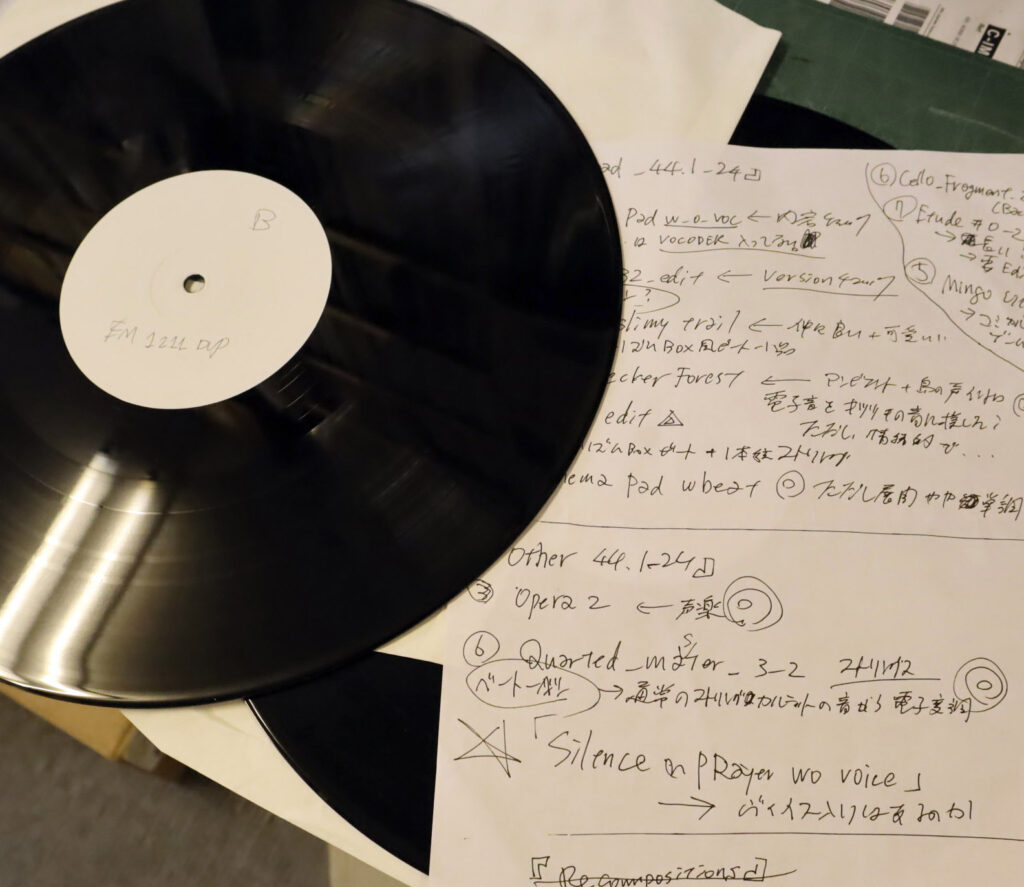Music for after after hours from cult favorite Japanese dream pop duo Sugar Plant, sometimes referred to as “Psychedelic Sade.” With the POiSON GiRL FRiEND hype reaching a […]
Labels We Love: EM Records (Osaka)

Join us September 18th from 2-5 p.m. at In Sheep’s Clothing NYC for a listening session dedicated to EM Records!
While building our in-house collection at In Sheep’s Clothing NYC, we worked with some of our favorite labels from around the world to pick out a selection of releases that would be forever part of our holdings. Over the next few months, we’ll continue to highlight these labels with listening sessions and deep dives into the stories and backgrounds behind these labels. This week, it’s all about Osaka-based label EM Records.
Informally celebrating its 25th Anniversary this year, the Osaka based label was founded in 1998 by Koki Emura. Emura (the ‘Em’ in EM Records) is a former record store employee and passionate lover of all music styles. Spanning over 200 releases that started with a CD reissue of 60’s British sunshine pop group Harmony Grass and having most recently released “a sparkling cyber-ambient-Mandarin pop hidden gem from the 1990s,” there are few labels still operating with bookends as diverse as EM’s.
Emura has kept much of the same spirit alive since the label’s inception, which is no easy task for any label, let alone a one-person label. Emura’s catchy, pop-art like design approach will make even the most unadventurous listener immediately curious, and it’s the quality of music that keeps listeners engaged.
Bandcamp: https://emrecords.bandcamp.com/
We caught up with the elusive label head in the middle of a hot Osaka summer to familiarize further about the label’s inception, approach and future plans.
How did the label get started?
I had worked in record stores since the early 1990s and had some knowledge of what the niche market, in today’s parlance, wanted, so we targeted our releases to that market. I also knew manufacturing and distribution from the beginning, which was an advantage. It was pure business at first, though now it’s the exact opposite. But it could be a long story to tell.

“EM Records is researching a hypothesis that ‘the spirit may reside in the musical form itself.'”
What is your earliest memory of music?
This is a lullaby sung to me by my great-grandmother, a farmer who was born in the Meiji era, late 19th century. She was illiterate, but her family and neighbors were amazed at how much she remembered of the past.
Can you describe the ethos/approach behind the label?
This requires a basic knowledge of the historical background, politics, and ideological history of Japan, a unique economic laboratory (almost the only country allowed to concentrate on economic development during the Cold War), from the Meiji Restoration onward. Because I’ve only lived in Japan.
But, to make a long story short, I will only say something conclusive: EM Records is researching a hypothesis that “the spirit may reside in the musical form itself.”
You could say that I am trying to find an answer to Francis Y. Fukuyama’s The End of History and the Last Man. However, I would like to state that I am not a formalist by any means!

For those new to the label, what are five essential releases to start with?
This question is difficult to answer because it depends on the previous answer. Also, almost every release has a story of its own, so it would not be fair to the whole work to highlight a few.
You are also a music book collector in addition to music. Can you share some of your favorite books that have guided you in your musical journey?
Essai Sur L’exotisme, by Victor Segalen.
Although not a music book, an essay on exoticism, I think it is a book that should be read by all cultural professionals/relativities. This essay, written more than 100 years ago, exposes a lot of Western (incl. Japanese) music labels as archaic imperialists and colonialists.
This essay is a guide to how we can break away from that. Unless this is transcended, the label in 2020s will never earn the word “trust.” Although I’m not sure the English version is available.
The Myth of the ‘Heart of Japan: A History of Enka in Postwar Popular Music, by Yusuke Wajima.
The Invention of Tradition, by Eric Hobsbawn & Terence Ranger.
These two books discuss how authority (and the things that represent it) can be generated arbitrarily and in a surprisingly short period of time, independent of the effects of natural selection. I have always been wary of the dynamics that work to make an organization “authoritative” in a particular cultural direction, and I hardly believe in that world … a violent and childish world that wants to take big numbers and decide the superiority of things based on quantitative superiority.

As a label owner, what are your personal favorite labels?
I liked Revenant, by the late John Fahey.
What is coming up next for the label?
2023 repress of Brenda Ray D’Ya Hear Me!, LP, NTsKi’s second album, a very experimental album by Georgia and Dove, and an archival compilation by Japanese musician Hyu.
Pick up the 2023 Repress of Brenda Ray’ D’Ya Hear Me! at the ISC Webshop:
Buy Brenda Ray’s D’Ya Hear Me!











